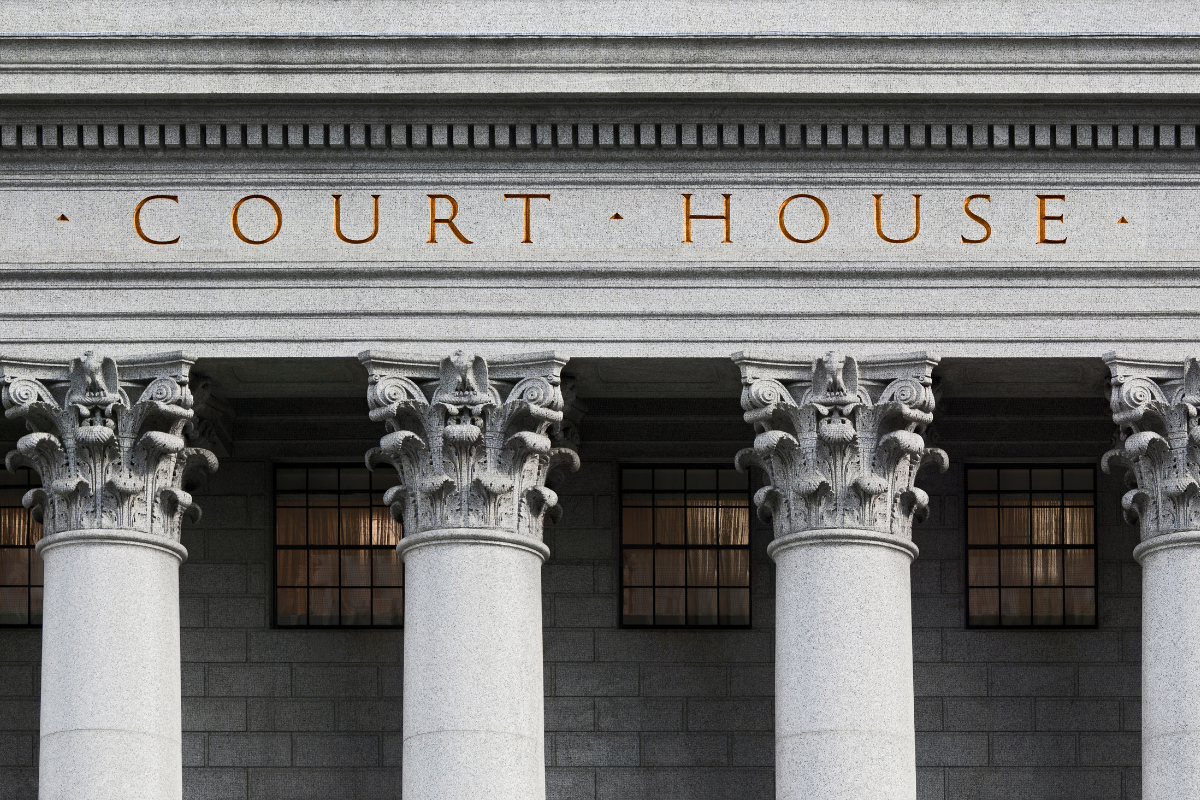Post Disclaimer: This blog reflects the author's personal experience with end-of-life matters and is provided in good faith for informational purposes only. While we aim to provide clear guidance on hard-to-find topics, this content is not legal advice and your use is at your own risk. Estate planning and end-of-life laws vary by location, so please consult your state's laws and seek guidance from a licensed attorney for your specific situation. We make no warranty about the accuracy or completeness of this information, which does not replace professional legal counsel. For more information, please see our full disclaimer.
Executor's legal responsibilities can feel overwhelming, especially if you're new to managing an estate.
As the executor, you're the designated individual tasked with ensuring a deceased person's last wishes are fulfilled.
This critical role involves numerous duties that carry legal weight.
An executor's legal duties include identifying and valuing assets, paying debts and taxes, filing necessary court documents, maintaining thorough records, and distributing remaining assets to beneficiaries according to the will. As a fiduciary, they must act in the best interest of the estate and its beneficiaries.
With these duties come legal obligations that must be handled with care.
Executors are fiduciaries, meaning they're legally obligated to act in the best interest of the heirs and beneficiaries.
It's crucial to note that the specific tasks can vary significantly depending on your location, as probate laws differ in each state.
It's wise to seek advice from a qualified attorney in your area to ensure you're compliant with local regulations.
Understanding these responsibilities is essential for anyone embarking on this important task, and preparation can make the process smoother for everyone involved.
Take a look at my article Primary Beneficiary vs Contingent Beneficiary: Key Differences Explained for clarity on the different types of beneficiaries.

Choosing the Right Executor
When faced with the decision of choosing an executor, it's crucial to select someone who will manage the intricate details of estate management effectively.
An executor's legal responsibilities can have lasting impacts on the heirs and the estate, making this choice one of profound significance.
Understanding the qualities that make an ideal executor and the challenges they might face is essential for anyone preparing a will.
Key Qualities to Look for in an Executor
Selecting an executor is like choosing the captain of a ship; they must navigate through sometimes choppy waters.
Here's what to look for:
- Reliability: A dependable executor ensures they will see the process through to completion, fulfilling all legal responsibilities with diligence. As LegalZoom explains, executors must manage and distribute estate assets responsibly.
- Organization: Executors deal with vast amounts of information, from financial documents to personal assets. An organized executor can keep track of all these moving parts with agility. They will also handle important tasks such as settling debts, filing taxes, and distributing assets to beneficiaries.
- Trustworthiness: An executor often holds significant control over an estate, so trust is non-negotiable. According to Justia, trustworthiness ensures that the executor acts in the best interests of the estate and beneficiaries, abiding by the decedent's wishes.
Potential Challenges for Executors
Executors might experience several hurdles on their journey.
These include:
- Legal Complexities: Navigating legal requirements can be daunting. Executors must adhere to state-specific laws, meaning what’s required in one state might differ in another.
- Emotional Stress: Handling family disputes and grieving beneficiaries can be emotionally taxing. Executors might find themselves as mediators in tense situations.
- Time Demands: Managing an estate properly requires significant time. Executors might find themselves juggling their responsibilities with their personal lives.
Importance of Trust and Reliability
Trust and reliability aren't just nice-to-have traits. They are the backbone of effective estate management.
A trustworthy and reliable executor will not only follow the legal path but will also respect familial dynamics and the decedent's wishes.
As Citizen's Bank suggests, choosing someone with a solid ethical foundation ensures smoother handling of the estate.
Selecting an executor is a decision with long-lasting consequences.
Recognize the varying state laws regarding an executor's legal responsibilities by consulting with an attorney in your area.
By focusing on key qualities and understanding potential challenges, you can ensure the estate is managed with integrity and respect for everyone involved.

Core Responsibilities of an Executor
Being an executor is like being the captain of a ship navigating through sometimes stormy seas.
You're in charge of guiding the deceased's estate to its final destination, ensuring each task is handled with care and precision.
But before you set sail, it's essential to understand the core responsibilities that come with this crucial role.
These duties aren't just tasks—they're legal mandates that need careful attention.
Keep in mind that these responsibilities can vary based on the state in which the estate is being handled, so consulting with a local attorney can help ensure you’re sailing on the right course.
Managing Assets
One of the primary duties of an executor is to manage the deceased's assets.
This involves taking a comprehensive inventory of all assets, which can include everything from real estate to personal belongings.
Just think of it as securing all the treasures on board—a vital step before moving forward.
Once inventoried, these assets must be secured to prevent any loss or damage.
Norton Rose Fulbright highlights the importance of protecting these assets until they can be properly distributed.
Managing these assets also means making decisions that protect their value.
Whether it's investing liquid assets or maintaining property to prevent depreciation, these tasks are all part of the executor's legal responsibilities.
Settling Debts and Taxes
As executor, settling the deceased's debts and taxes is an unavoidable part of the journey.
Imagine this as paying for the supplies and taxes needed for safe travel.
You'll need to identify all outstanding debts and liabilities such as credit card debts, mortgages, and loans.
Ensuring these debts are settled helps prevent future disputes that might arise among beneficiaries.
Taxes are another essential area requiring attention.
Executors must file the deceased's final tax return and any estate taxes that may be due.
This is a critical responsibility, as failure to do so can result in penalties that could deplete the estate’s assets.
Find more about this responsibility with Justia.
Distributing the Estate
Once debts and taxes are settled, an executor moves on to one of the most anticipated parts of the process—distributing the estate.
The executor's role here is akin to a conductor ensuring that the orchestra plays in harmony.
They must distribute the remaining assets according to the will's instructions.
However, the seas can become choppy here, especially if disputes arise among beneficiaries.
It requires both diplomacy and a clear understanding of the deceased's wishes to navigate these challenges effectively.
If disputes arise, executors may need to mediate or consult with legal professionals to resolve the issues as fairly as possible.
Legal Obligations
Executors also have several legal obligations to fulfill.
These are the navigational tools needed to keep you on course, ensuring compliance with probate laws and court requirements.
Key responsibilities include:
- Filing Court Documents: Executors need to file necessary documentation to open probate and finalize the estate. It's like registering your voyage with the port authorities before setting sail.
- Maintaining Records: Keeping thorough records of all transactions, communications, and decisions made during the administration of the estate is critical. These records can be your lifeline during audits or legal inquiries about your stewardship.
For a deeper dive into these legal obligations, take a look at the American Bar Association for guidelines and best practices.
The role of an executor carries a broad spectrum of responsibilities that must be handled with diligence and accuracy.
Remember, while the journey can be complex, understanding each responsibility helps in successfully delivering the estate to its rightful beneficiaries.

Possible Challenges and How to Address Them
Being an executor can feel like walking a tightrope.
You’re balancing the executor's legal responsibilities while trying not to upset any family equilibrium.
It's no walk in the park, especially when unexpected problems pop up.
Let’s explore some common challenges and practical solutions to help you tackle them head-on.
Navigating Conflicts Among Family Members
Family squabbles over estates can turn into epic dramas.
As an executor, mediating these disputes might seem more complicated than it’s worth.
When emotions run high, it’s crucial to maintain a level head.
- Clear Communication: Keep all parties in the loop. Transparent communication often nips misunderstandings in the bud. You can avoid misinterpretations by updating beneficiaries about decisions and timelines regularly.
- Document Everything: Keep thorough records of all transactions. This approach not only fulfills your executor's legal responsibilities but also acts as a shield during disputes.
- Mediation Assistance: Sometimes having a neutral third party helps. Seeking mediation can help resolve conflicts amicably without escalating them to court. For more insights, check out this article on managing conflicts as an executor.
Time Management and Personal Stress
Taking on the role of an executor is like juggling flaming torches – drop one, and you might get burned.
Effectively managing time and stress is vital to carrying out your duties.
- Set a Realistic Schedule: Assign tasks specific slots in your calendar. Break down goals into smaller, manageable steps to avoid feeling overwhelmed. For helpful tips on stress management, consider reading these strategies for balancing executor duties.
- Delegate Tasks: You don't have to handle everything on your own. Hire professionals for complex issues when necessary. This decision can free up time for more pressing matters.
- Self-Care: Remember that your well-being is paramount. Regularly set aside time to relax and recharge to maintain your own health.
Dealing with Complex Assets
Executors sometimes face the challenge of handling complex assets, from businesses to properties in different states.
Navigating these waters requires detailed attention and knowledge.
- Assess and Prioritize: First, understand each asset’s intricacies. Knowing what you're dealing with assists in prioritizing tasks according to complexity and urgency.
- Professional Help: Engaging financial experts or attorneys can be indispensable when dealing with complicated estates. Their expertise helps ensure compliance with all legal responsibilities. Explore comprehensive executor duties here.
- Stay Informed: Laws vary from state to state regarding executor's legal responsibilities. It’s wise to consult with an attorney in your area to align with local legal requirements and avoid any pitfalls.
In a nutshell, being an executor demands diligence, empathy, and a clear head.
Remember, each challenge is an opportunity to grow in understanding.
With the right tools and guidance, you can navigate these responsibilities smoothly, safeguarding both the estate’s interests and your peace of mind.

FAQs: Executor's Legal Responsibilities
Understanding the legal responsibilities of an executor is crucial for anyone stepping into this role.
Executors must handle tasks efficiently to ensure the deceased's wishes are carried out accurately.
Here, we’ll explore frequently asked questions regarding an executor's legal responsibilities to guide you through this complex process.
What Happens if an Executor Doesn't Fulfill Their Responsibilities?
If an executor doesn't meet their legal responsibilities, several serious consequences can arise.
Executors have a legal duty to act in the best interests of the estate and its beneficiaries.
Failure to do so can lead to:
- Legal Penalties: Executors might face personal liability for mismanagement, which can include being sued for breach of fiduciary duty. According to The Simon Law Firm, this can result in covering financial losses from their own assets.
- Removal from Position: A court can remove an executor from their role if they are not fulfilling their duties effectively.
- Delays in Estate Distribution: Mismanagement can cause significant delays, affecting heirs who are waiting for their inheritances.
Each state has different laws governing executor responsibilities, so it's wise to consult an attorney if you have concerns.
Can an Executor Hire Professionals to Assist in Their Duties?
Yes, an executor can hire professionals, and it's often a smart choice.
Dealing with an estate's complexities might require legal, financial, or tax expertise:
- Legal Assistance: Attorneys can help ensure that legal procedures are followed correctly.
- Accounting Needs: An accountant can manage the estate’s financial aspects, reducing errors.
- Appraisal Services: Hiring appraisers can accurately value assets, which is critical for proper distribution.
Having professionals on board not only ensures responsibilities are met but can also reduce the burden on the executor.
More details can be found in this guide.
Is It Possible to Decline the Role of an Executor After Being Named?
Yes, it is possible to decline the role even after being named in a will.
No one can be forced to act as an executor.
Should you decide it's not suitable for you:
- Formal Declination: File a formal declination with the probate court.
- Inform the Family: Let family members or the deceased's attorney know as soon as possible.
- Backup Executor Steps In: The will might name an alternate executor to take over if one declines.
Be sure to communicate your decision promptly to avoid delaying the probate process.
What Are the Consequences of Conflicts of Interest for an Executor?
Conflicts of interest can undermine the executor’s responsibilities and harm the estate’s integrity.
Executors must avoid situations where their personal interests could conflict with their duties.
Potential repercussions include:
- Court Challenges: Beneficiaries can contest the executor's decisions, leading to costly legal battles.
- Loss of Credibility: Trust with heirs can deteriorate, complicating estate administration.
- Financial Penalties: Misusing funds for personal gain can lead to severe financial consequences.
Executors must ensure transparency and fairness to avoid these pitfalls. For further reading, you can check out Trust & Will's article.
How Long Does the Executor Process Typically Take?
The duration of the executor process varies, depending mostly on the estate's complexity.
Generally, the timeline includes:
- Immediate Duties: Filing the will and notifying stakeholders should happen shortly after passing.
- Ongoing Responsibilities: Settling debts, taxes, and final expenses can take several months.
- Final Distribution: Typically, the entire process takes about 6 months to a year, but complicated estates might stretch for years.
State laws can impact these timelines, so consulting with a probate attorney in your area is advisable.
Executors shoulder significant responsibilities that demand attention to detail and a fair, ethical approach.
While laws surrounding executor's legal responsibilities may vary by state, understanding the core duties can greatly aid in fulfilling this challenging role.

Wrap-up: Executor's Legal Responsibilities
The executor's legal responsibilities are pivotal in ensuring a deceased's estate is appropriately managed and distributed according to their wishes.
An executor is tasked with duties like identifying and valuing assets, paying off debts and taxes, and distributing the remaining estate to beneficiaries.
Given the intricate nature of these tasks, selecting a responsible and capable executor is crucial for effective estate management.
It's important to understand that executor's legal responsibilities can vary significantly by state.
Consulting an attorney can provide specific guidance tailored to your region and circumstances, ensuring all legal obligations are met.
Engaging with an attorney is not just prudent; it's essential.
For potential executors and heirs, keeping abreast of state-specific laws helps navigate these responsibilities more effectively.
Check out the Up & Doing glossary page for an alphabetical listing of key terms related to estate administration, funeral planning, and other end-of-life topics.




